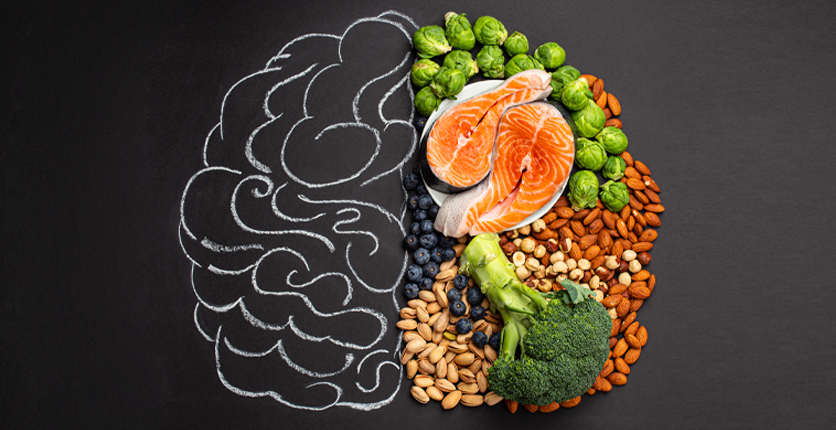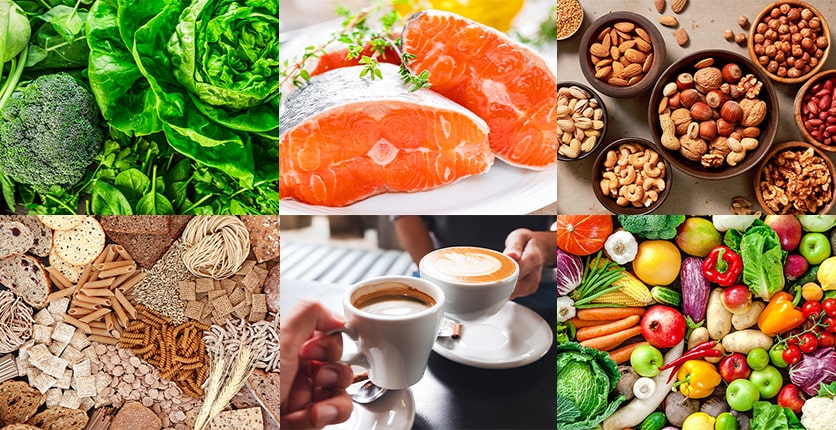How many times have you reached for a strong coffee while burning the midnight oil? Perhaps you needed a hit of energy or had trouble concentrating, and the caffeinated beverage was the only thing that could help you stay focused and alert.
But too much coffee may not be as good for your brain as you might think. According to Lai Sook Bing, Head Nutritionist at Every Day Nutrition, consuming more than six cups a day may increase your risk of dementia and cause brain shrinkage, although she adds that more research is still needed to conclude this.
The next time you need help concentrating, reach for a brain-loving food or beverage instead. These are full of nutrients that are essential for brain health and cognitive function, and are so easy to incorporate into your daily meals.
1. Turmeric
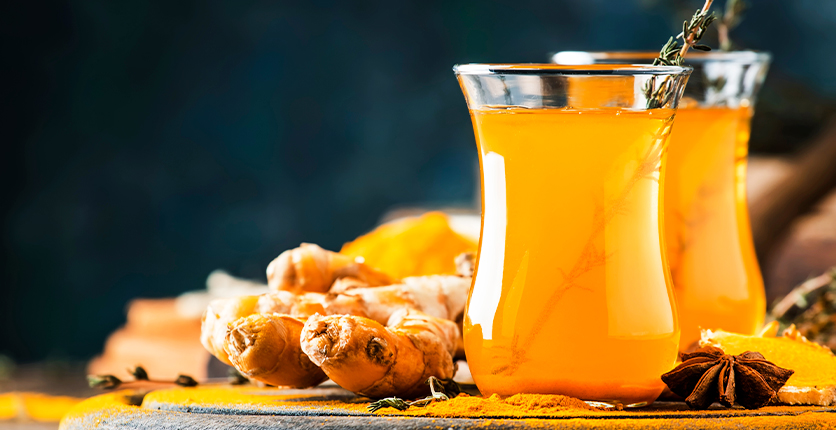
Curcumin, an antioxidant and the active ingredient in turmeric, may help reduce the amyloid plaques that lead to Alzheimer’s disease, says Sook Bing, who is also an accredited nutritionist with the Singapore Nutrition and Dietetics Association (SNDA).
“Besides improving memory, turmeric also helps boost the “happy hormone”, serotonin, in our brain, and may delay age-related cognitive decline. When cooking with turmeric, don’t forget to add some black pepper to enhance the absorption of curcumin.”
Curry powder contains turmeric, and you can make your own turmeric tea by adding a generous pinch of the spice to warm water.
2. Matcha
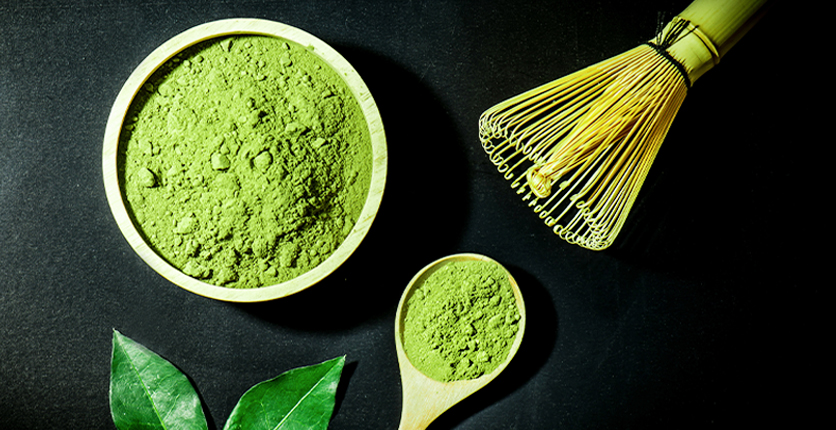
Matcha, a form of green tea, is a rich source of EGCG (epigallocatechin gallate), which is a flavonoid (a plant compound with a variety of health benefits).
Matcha is anti-inflammatory and anti-oxidative. It also contains L-theanine, a type of amino acid that promotes calmness and reduces stress. Plus, it has caffeine, which helps boost concentration and alertness, says Sook Bing.
3. Blueberries
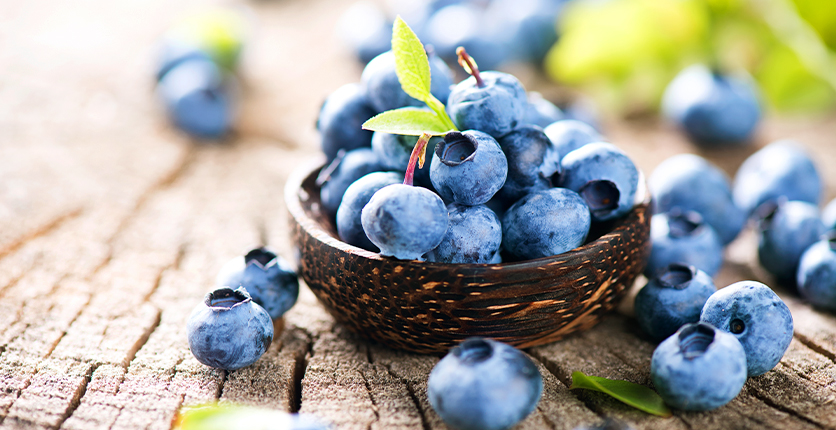
Blueberries are rich in anthocyanins, the flavonoid that gives berries their natural dark purple colour. Sook Bing says that blueberries may help improve memory by facilitating the communication between brain cells. Anthocyanins are also strong free radical scavengers that help reduce inflammation and delay cognitive decline.
4. Fatty fish
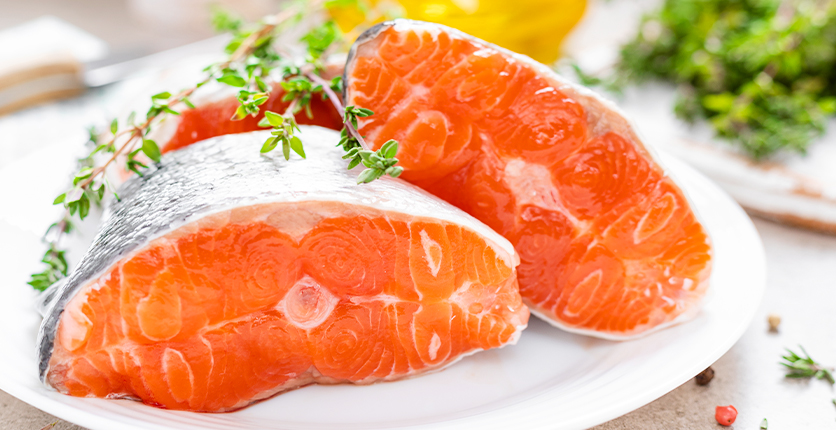
These include wild-caught salmon, mackerel, herring, sardines and albacore tuna. Sook Bing says that fatty fish are rich in an omega-3 fatty acid called Docosahexaenoic acid (DHA), which our brain needs to build cells and develop healthily. Eating fatty fish regularly may also increase the grey matter in the brain. Grey matter is involved in memory, learning and decision-making.
5. Carbohydrate-rich foods
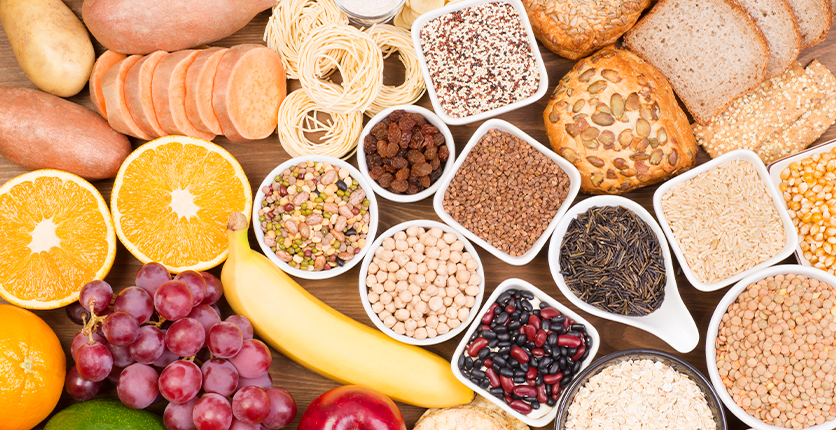
Don’t skip carbohydrates – they give your brain sustainable energy so that you can process information, remember things and focus on what you’re doing.
“Our brain uses carbohydrates as its primary fuel,” says Sook Bing.
“Since they are the preferred fuel source, a lack of carbohydrates may cause brain fog and difficulty processing information and concentrating.”
Choose complex carbohydrates, like sweet potatoes, oats, quinoa and whole fruit, over simple carbohydrates like cookies, candy bars, cake and doughnuts.
As well as giving you energy, complex carbohydrates provide you with fibre, vitamins, minerals and antioxidants. Plus, they take longer to digest, thereby giving you a steady and sustainable supply of energy.
6. Nuts and seeds
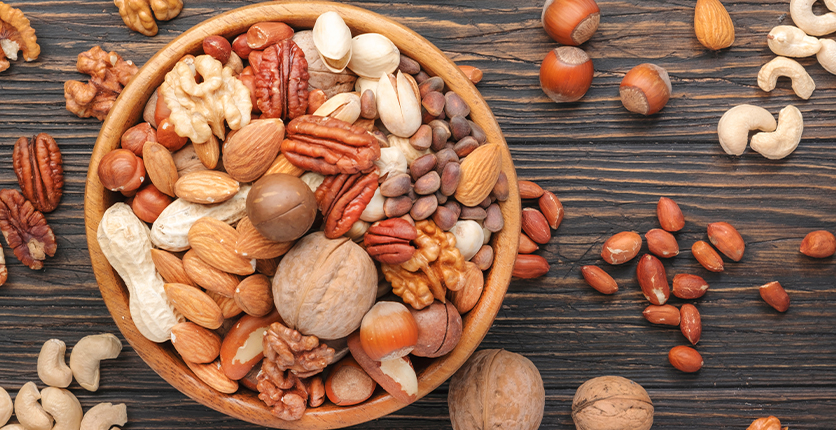
Walnuts, almonds, sunflower seeds and pumpkin seeds are packed with vitamin E. As an antioxidant, vitamin E acts as a free radical scavenger to help reduce oxidative stress in the brain, Sook Bing points out. This fat-soluble vitamin also protects the membranes in our brain and helps delay the onset of neurodegenerative diseases.
7. Colourful fruits and vegetables
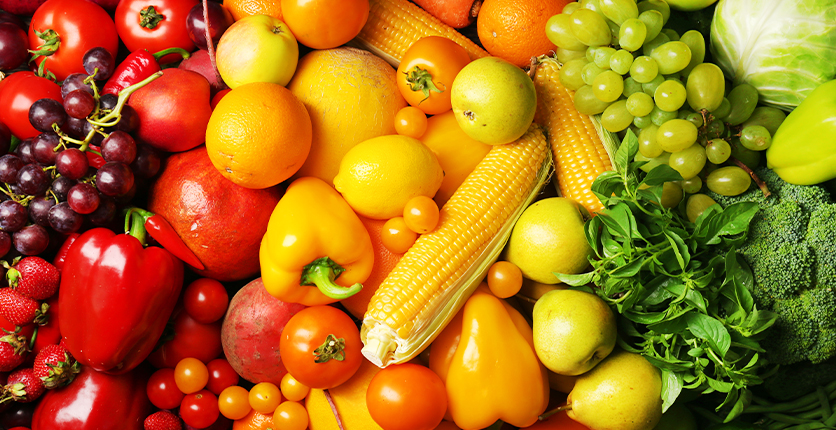
These are full of flavonoids, which have anti-inflammatory and anti-oxidative benefits.
“Flavonoids can help slow down premature ageing in the brain and may also help with memory and learning,” Sook Bing explains.
Go for bright-coloured produce like carrots, citrus fruits, bell peppers, green leafy veggies, eggplant, tomatoes, cruciferous vegetables, peaches, pumpkin, watermelon and berries.
Yellow, red and orange foods contain lutein and lycopene, which are powerful antioxidants that help protect our brain from oxidative stress-related cognitive decline, Sook Bing adds. They also help maintain normal cognitive function.
Get more tips about healthy eating here!
8. Dairy products
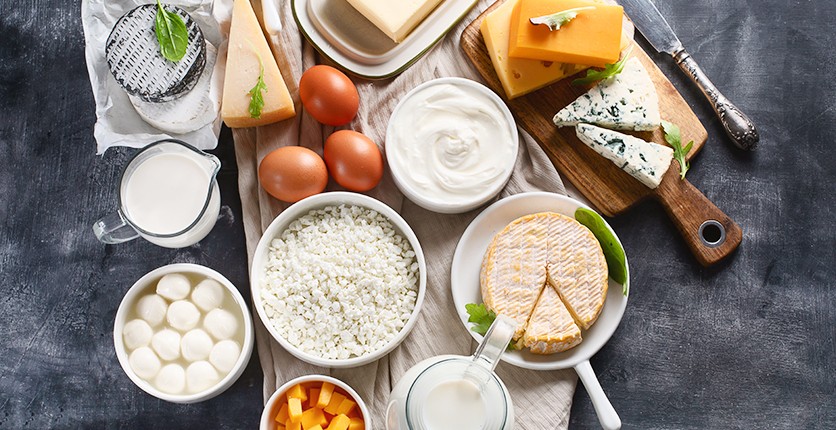
Packed with calcium, magnesium and vitamin D, foods like yogurt and milk are known to assist with normal brain development and function.
These nutrients are involved in making neurotransmitters (the body’s chemical messengers whose job it is to transmit signals from nerve cells to target cells). They also help with proper nerve cell function and improve our focus and memory, Sook Bing says.
9. Water

Hydration is important for optimum brain health.
“Proper hydration does not only improve your mood and facilitate the removal of waste and toxins that may harm the brain; it also ensures normal cognitive function,” Sook Bing explains.
“Dehydration can lead to poor brain performance, which may affect your mental clarity and memory as well as your ability to focus and think clearly. It can also cause mental fatigue. When you’re well hydrated you enjoy better blood circulation, which is vital for helping to transport oxygen and nutrients to your brain.”
For an age-specific guide to healthy eating, click here.
Get smart with these TCM remedies
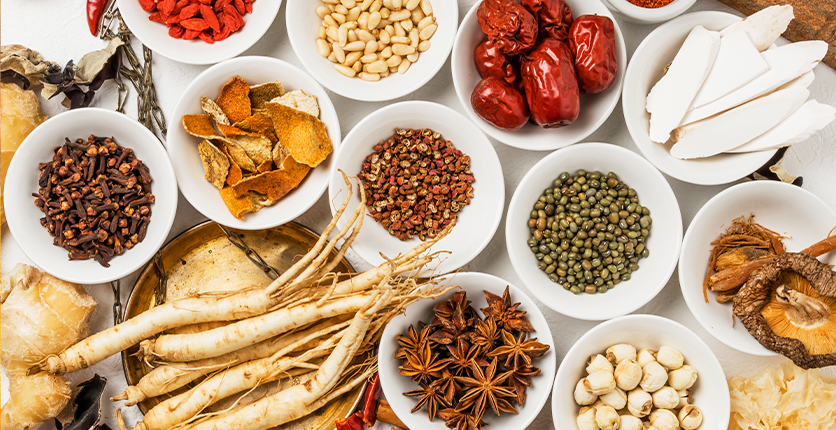
Did you know that Traditional Chinese Medicine (TCM) also has its own superfoods that boost brainpower? Physician Kang Jie from Eu Yan Sang Integrative Health shares a few herbal remedies for better brain health.
Consume herbs that help with focus, memory, energy and concentration
These include:
- Ginseng (Ren Shen 人参): Ginseng is said to improve cognitive function, memory and concentration. It is also believed to help increase energy levels and reduce fatigue.
- Ginkgo (Bai Guo 白果): Ginkgo may help with memory enhancement, alertness and concentration. Plus, it may improve blood circulation, which helps deliver oxygen and nutrients to the brain.
- Gotu Kola (Ji Xue Cao 积雪草): Gotu kola is used in TCM to improve mental clarity and cognitive function. It is also believed to help reduce anxiety and promote relaxation.
- Rhodiola (Hong Jing Tian 红景天): Rhodiola helps increase mental and physical performance, reduce fatigue and improve mood.
- Schisandra (Wu Wei Zi 五味子): Schisandra is thought to help increase mental clarity and focus, improve memory and reduce anxiety and stress.
Note: TCM treatments are typically personalised according to one’s needs. It’s important to consult a licensed TCM practitioner before using any herbs or supplements.
Try these DIY herbal remedies
These DIY herbal remedies may be beneficial for brain health and function:
- Rosemary tea: Rosemary is an herb that has been traditionally used to support brain health and memory. To make rosemary tea, steep 1 to 2 teaspoons of dried rosemary in hot water for 5 to 10 minutes. You can drink this tea daily.
- Turmeric milk: Turmeric is a spice that contains compounds that may help protect the brain from damage and inflammation. To make turmeric milk, warm 1 cup of milk (dairy or non-dairy) in a saucepan and add 1 teaspoon of turmeric powder. Stir well and add honey or maple syrup to taste.
- Ginkgo biloba tea: Ginkgo biloba is an herb that has been traditionally used to support cognitive function and improve blood flow to the brain. To make ginkgo biloba tea, steep 1 to 2 teaspoons of dried ginkgo biloba leaves in hot water for 5 to 10 minutes. Drink this tea once a day.
- Lemon balm tea: Lemon balm is an herb that has been traditionally used to support cognitive function and reduce anxiety. To make lemon balm tea, steep 1 to 2 teaspoons of dried lemon balm leaves in hot water for 5 to 10 minutes. Drink this tea once a day.
Note: Herbs have been used for centuries to support brain health and function, but herbal remedies should be used with caution and under the guidance of a qualified healthcare practitioner. Herbal remedies are also no substitute for medical treatment for any health condition. If you have concerns about your brain health, consult a qualified healthcare provider for an appropriate diagnosis and treatment.
SAFRA members who are first-time patients can get a free consultation from Eu Yan Sang Integrative Health. Find out more at safra.sg/promotions/healthcare-products-and-services#euyansangtcm
You can also get 25% off when you order any 2 boxes of Quality Bird’s Nest With Rock Sugar 6’s / Quality Bird’s Nest With Rock Sugar (Reduced Sugar) (U.P. $49.90 each). Find out more at safra.sg/promotions/euyansangsingapore.
NSmen, sign up for your complimentary 1-year SAFRA membership and enjoy discounts on dining and shopping purchases at over 2,000 merchant outlets islandwide, as well as members’ rates at more than 45 sports facilities at SAFRA clubs! What’s more, your family can enjoy the privileges too – your 1st dependent pays $10/year, and it’s free for your 2nd dependent onwards. Click here for more details.
Want more articles like this, and other lifestyle content right in your inbox? Download the new SAFRA mobile app and opt in for the eNSman Newsletter – you don’t need to be a SAFRA member to subscribe – and never miss another story!
